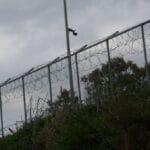„A combination of war fatigue, the financial crisis, energy self-sufficiency, and a desire to shift focus to Asia contributed to a scaling-back of American strategic engagement in the region. This was demonstrated most concretely by what regional allies saw as a precipitous U.S. withdrawal from Iraq in 2011 and by America’s failure to act on its Syrian chemical weapons ‚red line‘ in 2013. At the same time, President Obama’s focus on improving relations with Iran altered the nature of that engagement. The U.S. had effectively set aside its longstanding strategy but articulated no clear replacement. The result, when combined with the ouster of U.S. allies in Egypt and elsewhere, was the collapse of the region’s security architecture.“ (Michael Singh vom Washington Institute for Near East Policy über die Auswirkungen der Politik der Obama-Administration auf den Nahen Osten: „The Great Unraveling“)






